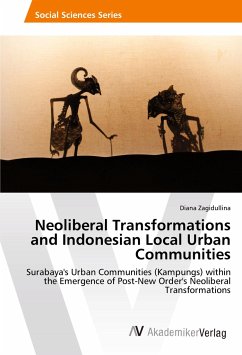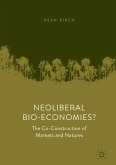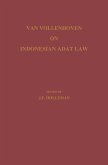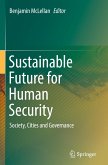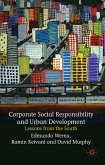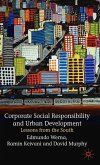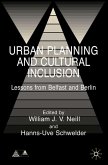This book focuses on diverse socio-cultural, administrative, political, and economic changes, happening in the local Surabaya's communities (kampungs) since the resignation of the Indonesian President Muhammad Suharto in 1998. The research emphasizes alterations that took place in the urban localities kampungs and influenced transport mobility and other infrastructure reconfigurations in Surabaya within the emergence of post-Suharto neoliberal policies and transformations. Particular research focus is placed on the informal economy activities involving more than 70% of employees at the Indonesian labor market and the importance of partnership between private and public sectors.
Hinweis: Dieser Artikel kann nur an eine deutsche Lieferadresse ausgeliefert werden.
Hinweis: Dieser Artikel kann nur an eine deutsche Lieferadresse ausgeliefert werden.

